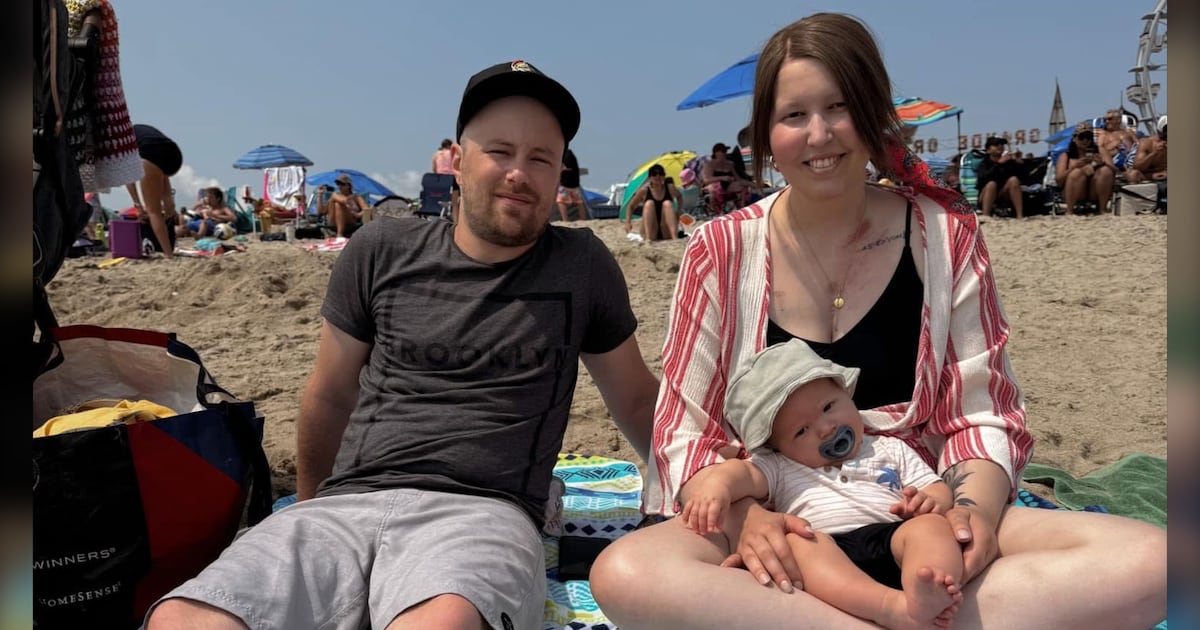A Montreal woman who was told by health-care professionals that she was too young for breast cancer but later diagnosed with it, has died from the disease. Valerie Buchanan was 32 when she died at the end of February.
“I keep asking myself why anyone, but selfishly, why her?” Chris Scheepers, Buchanan’s husband told CTVNews.ca in a telephone interview. “She was a beautiful person. She was extremely driven, talented and positive. What really breaks me is our son won’t know the truly remarkable woman she was.”
Throughout 2020, Buchanan sought answers for a lump in her chest but had said she was reassured by multiple health-care professionals in Ottawa and Montreal that it was a benign cyst without sending her for imaging to confirm.
After 13 months, Buchanan eventually went to a private clinic and was diagnosed with Stage 3 triple-negative breast cancer – a biologically aggressive subtype of breast cancer. Just a few months later, she learned it was Stage 4.



That can be effective in the US but would generally not work in Canada where malpractice suits are uncommon.
In Canada you may have better luck pursuing a complaint to the province’s licensing authority.
As a healthcare provider (HCP) I would generally try to dissuade patients from exaggerating or overstating. Most doctors and nurses have dealt with enough people that we have a good sense of when someone is exaggerating or even outright lying. Usually it is counterproductive and decreases the chance that your concern or complaint will be addressed appropriately.
I would advocate for centering the conversation on how symptoms have changed / affected your quality of life. A good HCP would make this part of the coversation but I know that not all of my colleagues do so, especially in light of corporate or governmental pressure to see as many patients in as fast as possible.
I feel/have _____ when I do _____ and I’m worried that it will continue, impairing my ability to _____ is a general approach.
As someone who heard several accounts from people with endometriosis, I get the feeling that a lot of healthcare professionals are severely overestimating their own ability to “have a good sense when someone is exagerating”. The stories these women tell are absolutely infuriating, and the diagnosis rate vs prevalence of the disease just as much. Clearly many doctors are simply dismissing complaints about period pain out of hand.
IDK, I know nothing about healthcare but shouldn’t complaints about pain be objectivized a little bit? Like can’t you just slap me in the face and ask which hurts more? Because I feel like doctors would often be surprised by the kind of pain some chronically ill people put up with without showing any external signs.
I’ve had a gynecologist tell his resident that it’s a good idea to train the patients on how to answer questions. It never crossed his mind to listen to women first.
As a healthcare worker with autoimmune disease and chronic pain, I hear where you’re coming from. The job would be a lot of easier if pain could be measured objectively. Everyone has a different tolerance for pain and chronic pain makes it all the more unpredictable.
The average time to diagnosis for endometriosis is 4 to 8 years. It’s a notoriously difficult diagnosis that often cant be made definitively without some form of invasive testing (which is taught in medical school). But, regardless of vocation, education cannot completely correct bias and there is lot of room for improvement in healthcare when it comes to women’s health.